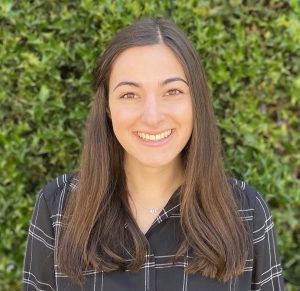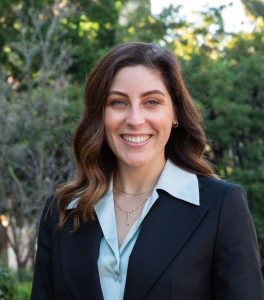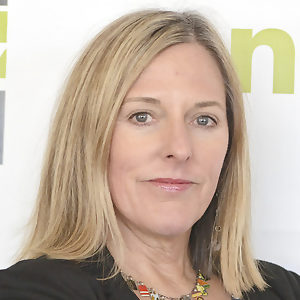People
|
Dr. Linda J. Sax, Founding Director
|
|
Dr. Chantra Nhien, Associate Director
|
|
Dr. HyeJin Tina Yeo, Associate Director of the CIC Research Project
|
|
Catherine Jang, Research Analyst
|
|
Brian Le, Research Analyst
|
|
Max Pereyra, Research Analyst
|
|
Paul Zhang, Research Intern
|
Research Affiliates are colleagues who are currently collaborating on Momentum projects and/or using Momentum data.
 Jennifer M. Blaney, Ph.D., is an Associate Professor in the McBee Institute of Higher Education at the University of Georgia. She completed her PhD in higher education from UCLA and previously served on the faculty at Northern Arizona University and Idaho State University. Dr. Blaney’s research primarily focuses on how community college transfer can function as a mechanism for advancing gender equity in computing and other STEM fields. Her recent studies of transfer pathways in computer science have been supported by multiple grants from the Spencer Foundation and the National Science Foundation. Dr. Blaney has authored more than 30 peer reviewed publications, and her scholarship has been recognized through multiple awards, including the 2024 Townsend Emerging Scholar Award from the Council for the Study of Community Colleges, the 2023 NAEd/Spencer Postdoctoral Fellowship, and a recent NSF CAREER award to further her research on equity and transfer degree trajectories in computing. Jennifer M. Blaney, Ph.D., is an Associate Professor in the McBee Institute of Higher Education at the University of Georgia. She completed her PhD in higher education from UCLA and previously served on the faculty at Northern Arizona University and Idaho State University. Dr. Blaney’s research primarily focuses on how community college transfer can function as a mechanism for advancing gender equity in computing and other STEM fields. Her recent studies of transfer pathways in computer science have been supported by multiple grants from the Spencer Foundation and the National Science Foundation. Dr. Blaney has authored more than 30 peer reviewed publications, and her scholarship has been recognized through multiple awards, including the 2024 Townsend Emerging Scholar Award from the Council for the Study of Community Colleges, the 2023 NAEd/Spencer Postdoctoral Fellowship, and a recent NSF CAREER award to further her research on equity and transfer degree trajectories in computing. |
|
Prior to joining the NRC, Kate served as co-founder and Associate Director of Momentum: Accelerating Equity in Computing and Technology and as Assistant Academic Researcher and Assistant Adjunct Professor in UCLA’s School of Education & Information Studies. Over her 12 years at UCLA, Kate worked alongside Dr. Linda Sax to establish Momentum’s reputation as a leader in computing education research. During her tenure as Associate Director, she served as PI or co-PI on numerous large-scale, NSF-funded projects, recruited and developed top research talent, established key partnerships with leaders in education research and policy, led extramural fundraising efforts, published widely, and regularly represented Momentum at national and international conferences and convenings. Kate continues to serve as co-PI on Momentum’s NSF-funded study of students at Center for Inclusive Computing institutions. Kate has also held positions in student affairs at The Ohio State University and the University of North Carolina Charlotte. |
|
|
 Dr. Sarah L. Rodriguez is an Associate Professor in Engineering Education Department within the College of Engineering at Virginia Tech. Dr. Rodriguez’s research addresses issues of equity, access, and retention in higher education, with a focus on Latina/o students and students in science, technology, engineering, and mathematics (STEM) fields. Currently, she is involved with several large-scale interdisciplinary research projects focused on institutional environments and STEM identity development which have been sponsored by the National Science Foundation (NSF). She received her Ph.D. in Higher Education Leadership from The University of Texas at Austin and holds a master’s degree with a focus in College Student Personnel from The University of Tennessee. She also holds a bachelor’s degree in English and Spanish from Texas A&M University-Commerce and was a transfer student from Trinity Valley Community College. During her academic career, Dr. Rodriguez has presented at conferences at the national, regional, and local levels and authored journal articles, book chapters, policy briefs, and other publications on student success. Dr. Sarah L. Rodriguez is an Associate Professor in Engineering Education Department within the College of Engineering at Virginia Tech. Dr. Rodriguez’s research addresses issues of equity, access, and retention in higher education, with a focus on Latina/o students and students in science, technology, engineering, and mathematics (STEM) fields. Currently, she is involved with several large-scale interdisciplinary research projects focused on institutional environments and STEM identity development which have been sponsored by the National Science Foundation (NSF). She received her Ph.D. in Higher Education Leadership from The University of Texas at Austin and holds a master’s degree with a focus in College Student Personnel from The University of Tennessee. She also holds a bachelor’s degree in English and Spanish from Texas A&M University-Commerce and was a transfer student from Trinity Valley Community College. During her academic career, Dr. Rodriguez has presented at conferences at the national, regional, and local levels and authored journal articles, book chapters, policy briefs, and other publications on student success. |
|
|
 Dr. Jane Stout earned her Ph.D. in social psychology from the University of Massachusetts Amherst in 2011. She has been studying diversity-related issues in science and technology for more than a decade, has published widely on the topic, and has received several grants and awards for her work. Dr. Stout has expertise in data science, statistics, and qualitative methods, which she uses in her consulting role for BRAID projects. Dr. Jane Stout earned her Ph.D. in social psychology from the University of Massachusetts Amherst in 2011. She has been studying diversity-related issues in science and technology for more than a decade, has published widely on the topic, and has received several grants and awards for her work. Dr. Stout has expertise in data science, statistics, and qualitative methods, which she uses in her consulting role for BRAID projects. |
 Sarayu Sundar, Ph.D., is a Higher Education Research Associate with the National Center for Women & Information Technology (NCWIT) at the University of Colorado Boulder. In this role, Dr. Sundar focuses on leveraging quantitative and qualitative data to broaden participation in computing. Prior to joining NCWIT, she served as a Research Analyst for five years with Momentum: Accelerating Equity in Computing and Technology at UCLA. Dr. Sundar completed her Ph.D. in Higher Education and Organizational Change at UCLA in 2022 and also earned a bachelor’s degree in Accounting and master’s degree in Higher Education Administration from the University of Houston. Sarayu Sundar, Ph.D., is a Higher Education Research Associate with the National Center for Women & Information Technology (NCWIT) at the University of Colorado Boulder. In this role, Dr. Sundar focuses on leveraging quantitative and qualitative data to broaden participation in computing. Prior to joining NCWIT, she served as a Research Analyst for five years with Momentum: Accelerating Equity in Computing and Technology at UCLA. Dr. Sundar completed her Ph.D. in Higher Education and Organizational Change at UCLA in 2022 and also earned a bachelor’s degree in Accounting and master’s degree in Higher Education Administration from the University of Houston. |
 Annie M. Wofford, Ph.D., is an Assistant Professor of Higher Education in the Department of Educational Leadership & Policy Studies at Florida State University. Her research interests center on structural inequities within graduate education, and she focuses on the development of equity-minded structures of support in STEM students’ trajectories to and through graduate school. Wofford’s research about doctoral students’ mentoring practices has most recently been funded through a partnership with the Inclusive Graduate Education Network. She has been a research affiliate and postdoctoral scholar for several NSF-funded projects about equity in STEM and graduate school trajectories outside of Momentum, including projects focused on Ph.D. pathways for upward transfer computing students and doctoral students’ experiences in biological sciences. Wofford earned a Ph.D. in Higher Education and Organizational Change from UCLA, a master’s degree in educational administration, a bachelor’s degree in secondary social studies education, and has worked in medical school graduate admissions. Annie M. Wofford, Ph.D., is an Assistant Professor of Higher Education in the Department of Educational Leadership & Policy Studies at Florida State University. Her research interests center on structural inequities within graduate education, and she focuses on the development of equity-minded structures of support in STEM students’ trajectories to and through graduate school. Wofford’s research about doctoral students’ mentoring practices has most recently been funded through a partnership with the Inclusive Graduate Education Network. She has been a research affiliate and postdoctoral scholar for several NSF-funded projects about equity in STEM and graduate school trajectories outside of Momentum, including projects focused on Ph.D. pathways for upward transfer computing students and doctoral students’ experiences in biological sciences. Wofford earned a Ph.D. in Higher Education and Organizational Change from UCLA, a master’s degree in educational administration, a bachelor’s degree in secondary social studies education, and has worked in medical school graduate admissions. |
|
|
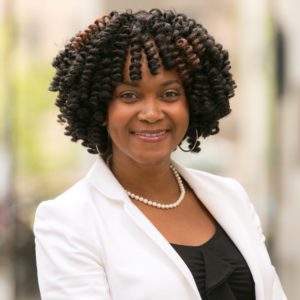 Joy Gaston Gayles, Ph.D. is professor of higher education and senior advisor for the advancement of diversity, equity, and inclusion for the college of education at North Carolina State University. She is also president for the Association for the Student of Higher Education (ASHE). Her research focuses on access and success in post-secondary education for women and people of color in STEM fields as well as intercollegiate athletics. Recently, she co-edited a book volume entitled Advancing Higher Education Research on Undergraduate Women in STEM. She recently completed a National Science Foundation (NSF) funded project on early-career faculty of color in engineering. Joy Gaston Gayles, Ph.D. is professor of higher education and senior advisor for the advancement of diversity, equity, and inclusion for the college of education at North Carolina State University. She is also president for the Association for the Student of Higher Education (ASHE). Her research focuses on access and success in post-secondary education for women and people of color in STEM fields as well as intercollegiate athletics. Recently, she co-edited a book volume entitled Advancing Higher Education Research on Undergraduate Women in STEM. She recently completed a National Science Foundation (NSF) funded project on early-career faculty of color in engineering.
|
 Colleen Lewis is an Assistant Professor of computer science (CS) at the University of Illinois Urbana-Champaign. Lewis was previously the McGregor-Girand Associate Professor of CS at Harvey Mudd College. At the University of California, Berkeley, Lewis completed a PhD in science and mathematics education, an MS in computer science, and a BS in electrical engineering and computer science. Her research seeks to identify and remove barriers to CS learning and understand and optimize CS learning. Lewis curates CSTeachingTips.org, a NSF-sponsored project for disseminating effective CS teaching practices. Lewis has received the NCWIT.org Undergraduate Mentoring Award and the AnitaB.org Emerging Leader Award for her efforts to broaden participation in computing. Colleen Lewis is an Assistant Professor of computer science (CS) at the University of Illinois Urbana-Champaign. Lewis was previously the McGregor-Girand Associate Professor of CS at Harvey Mudd College. At the University of California, Berkeley, Lewis completed a PhD in science and mathematics education, an MS in computer science, and a BS in electrical engineering and computer science. Her research seeks to identify and remove barriers to CS learning and understand and optimize CS learning. Lewis curates CSTeachingTips.org, a NSF-sponsored project for disseminating effective CS teaching practices. Lewis has received the NCWIT.org Undergraduate Mentoring Award and the AnitaB.org Emerging Leader Award for her efforts to broaden participation in computing.
|
 Dr. Allison Scott is the CEO of the Kapor Foundation, part of the Kapor Center family of organizations, aiming to increase racial diversity in tech and entrepreneurship. We believe that when the tech workforce and leadership reflects the diversity of the country, innovation will be strengthened and tech can be used to close longstanding gaps across sectors. At the Foundation, Dr. Scott leads efforts to: (a) conduct research on barriers and solutions to racial inequality in tech, and (b) operate programs and invest in pathways into the tech/entrepreneurship workforce, and (c) work in partnership with stakeholders to advocate for transformational change in policies and practices to expand racial equity in technology. Dr. Scott is currently a Principal Investigator on multiple national grants to expand equity in computer science education and increase participation of women of color across the computing pipeline and in her previous role as the Chief Research Officer, authored foundational research on disparities in tech and entrepreneurship, inequity in CS education, and interventions to improve STEM outcomes for students of color. Previous positions include: Chief Research Officer at the Kapor Center; Program Leader for the National Institutes of Health’s Enhancing the Diversity of the Biomedical Workforce Initiative; Director of Research and Evaluation for the Level Playing Field Institute, and Data Analyst for the Education Trust-West. Dr. Scott holds a Ph.D. in Education from the University of California, Berkeley and a Bachelor’s degree in Psychology from Hampton University. Dr. Allison Scott is the CEO of the Kapor Foundation, part of the Kapor Center family of organizations, aiming to increase racial diversity in tech and entrepreneurship. We believe that when the tech workforce and leadership reflects the diversity of the country, innovation will be strengthened and tech can be used to close longstanding gaps across sectors. At the Foundation, Dr. Scott leads efforts to: (a) conduct research on barriers and solutions to racial inequality in tech, and (b) operate programs and invest in pathways into the tech/entrepreneurship workforce, and (c) work in partnership with stakeholders to advocate for transformational change in policies and practices to expand racial equity in technology. Dr. Scott is currently a Principal Investigator on multiple national grants to expand equity in computer science education and increase participation of women of color across the computing pipeline and in her previous role as the Chief Research Officer, authored foundational research on disparities in tech and entrepreneurship, inequity in CS education, and interventions to improve STEM outcomes for students of color. Previous positions include: Chief Research Officer at the Kapor Center; Program Leader for the National Institutes of Health’s Enhancing the Diversity of the Biomedical Workforce Initiative; Director of Research and Evaluation for the Level Playing Field Institute, and Data Analyst for the Education Trust-West. Dr. Scott holds a Ph.D. in Education from the University of California, Berkeley and a Bachelor’s degree in Psychology from Hampton University. |
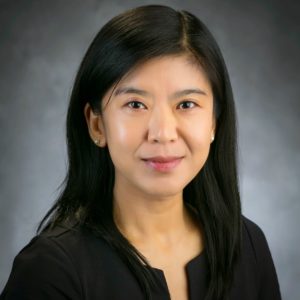 Xueli Wang is the Barbara and Glenn Thompson Professor in the Department of Educational Leadership and Policy Analysis at the University of Wisconsin–Madison. Her research agenda centers on identifying factors and contexts that shape underserved students’ learning, experiences, and trajectories to success. Her scholarship has primarily advanced this area of focus through two interconnected strands: (1) students’ participation and success in science, technology, engineering, and mathematics (STEM) fields; and (2) the access, progress, and development of students who begin postsecondary education at community colleges. A notable example of Dr. Wang’s work is “On My Own” (Harvard Education Press, April 2020). Grounded in longitudinal, mixed methods research, the book unravels enduring inequities in transfer access, particularly in STEM, and issues a plan of action toward cultivating equitable STEM transfer pathways. Xueli Wang is the Barbara and Glenn Thompson Professor in the Department of Educational Leadership and Policy Analysis at the University of Wisconsin–Madison. Her research agenda centers on identifying factors and contexts that shape underserved students’ learning, experiences, and trajectories to success. Her scholarship has primarily advanced this area of focus through two interconnected strands: (1) students’ participation and success in science, technology, engineering, and mathematics (STEM) fields; and (2) the access, progress, and development of students who begin postsecondary education at community colleges. A notable example of Dr. Wang’s work is “On My Own” (Harvard Education Press, April 2020). Grounded in longitudinal, mixed methods research, the book unravels enduring inequities in transfer access, particularly in STEM, and issues a plan of action toward cultivating equitable STEM transfer pathways. |

 Linda J. Sax (she/her/hers) is a professor of higher education in the School of Education & Information Studies at UCLA. She is also the founding director of Momentum: Accelerating Equity in Computing and Technology at UCLA. For over three decades, Dr. Sax’s research has focused on gender differences in college student development, with an emphasis on women in STEM fields. She has secured over $10 million in extramural support from organizations including the National Science Foundation, the U.S. Department of Education, the Alfred P. Sloan Foundation, the Computing Research Association, AnitaB.org, the Kapor Center, Google.org, and Pivotal Ventures. Dr. Sax previously served as national director (from 1997 to 2005) of the Cooperative Institutional Research Program (CIRP) at the Higher Education Research Institute (HERI), the nation’s largest and longest-running multi-institutional study of college students. Dr. Sax is the author of more than 125 publications, including The Gender Gap in College: Maximizing the Developmental Potential of Women and Men (Jossey-Bass, 2008). She is the recipient of numerous awards, including the 1999 Early Career Award from the Association for the Study of Higher Education (ASHE), the 2005 AAUW Scholar-in-Residence Award, the 2015 UCLA Department of Education Distinguished Teaching Award, and the 2019 ASHE Mentoring Award.
Linda J. Sax (she/her/hers) is a professor of higher education in the School of Education & Information Studies at UCLA. She is also the founding director of Momentum: Accelerating Equity in Computing and Technology at UCLA. For over three decades, Dr. Sax’s research has focused on gender differences in college student development, with an emphasis on women in STEM fields. She has secured over $10 million in extramural support from organizations including the National Science Foundation, the U.S. Department of Education, the Alfred P. Sloan Foundation, the Computing Research Association, AnitaB.org, the Kapor Center, Google.org, and Pivotal Ventures. Dr. Sax previously served as national director (from 1997 to 2005) of the Cooperative Institutional Research Program (CIRP) at the Higher Education Research Institute (HERI), the nation’s largest and longest-running multi-institutional study of college students. Dr. Sax is the author of more than 125 publications, including The Gender Gap in College: Maximizing the Developmental Potential of Women and Men (Jossey-Bass, 2008). She is the recipient of numerous awards, including the 1999 Early Career Award from the Association for the Study of Higher Education (ASHE), the 2005 AAUW Scholar-in-Residence Award, the 2015 UCLA Department of Education Distinguished Teaching Award, and the 2019 ASHE Mentoring Award. Chantra Nhien (he/him/his) serves as the Associate Director of Momentum at UCLA. He earned his Ph.D. in Higher Education & Organizational Change and B.S. in Biology from UCLA and received his M.P.H. in Health Promotion & Behavioral Sciences from San Diego State University. Prior to stepping into his current role at Momentum, he completed a postdoctoral fellowship at Florida State University’s Center for Postsecondary Success where he used quantitative research designs to examine community college pathways to computing for marginalized groups in computing and tech. At Momentum, his research centers on the experiences of Asian students in postsecondary computing. He is also investigating the landscape of more recent broadening participation in postsecondary computing (BPC) scholarship to better understand how BPC research has been conducted and what currently works (or does not) in advancing diversity and equity among women and other marginalized groups in computing and tech. Outside of academia, Chantra enjoys outdoor running and strives to complete at least one marathon a year.
Chantra Nhien (he/him/his) serves as the Associate Director of Momentum at UCLA. He earned his Ph.D. in Higher Education & Organizational Change and B.S. in Biology from UCLA and received his M.P.H. in Health Promotion & Behavioral Sciences from San Diego State University. Prior to stepping into his current role at Momentum, he completed a postdoctoral fellowship at Florida State University’s Center for Postsecondary Success where he used quantitative research designs to examine community college pathways to computing for marginalized groups in computing and tech. At Momentum, his research centers on the experiences of Asian students in postsecondary computing. He is also investigating the landscape of more recent broadening participation in postsecondary computing (BPC) scholarship to better understand how BPC research has been conducted and what currently works (or does not) in advancing diversity and equity among women and other marginalized groups in computing and tech. Outside of academia, Chantra enjoys outdoor running and strives to complete at least one marathon a year. HyeJin Tina Yeo, Ph.D., serves as the Associate Director of the CIC Research Project within Momentum at UCLA, examining students’ experiences and academic and career trajectories in computing. As a critical scholar, mixed methodologist, and sociologist with a transnational background, she investigates power dynamics, inequality, and data injustice in key areas of higher education, including college student development, intergroup socialization, and access to and success in STEM education. The International Student Critical Race Theory (IntlCrit) developed by Dr. Yeo provides deeper insights into the racial experiences of international students by incorporating individual factors with broader contextual dynamics at meso- and macro-levels, including sociocultural, historical, geopolitical, and global influences. Dr. Yeo earned her Ph.D. in the Sociology of Higher Education from the University of Illinois Urbana-Champaign. She meditates every day and enjoys playing tennis.
HyeJin Tina Yeo, Ph.D., serves as the Associate Director of the CIC Research Project within Momentum at UCLA, examining students’ experiences and academic and career trajectories in computing. As a critical scholar, mixed methodologist, and sociologist with a transnational background, she investigates power dynamics, inequality, and data injustice in key areas of higher education, including college student development, intergroup socialization, and access to and success in STEM education. The International Student Critical Race Theory (IntlCrit) developed by Dr. Yeo provides deeper insights into the racial experiences of international students by incorporating individual factors with broader contextual dynamics at meso- and macro-levels, including sociocultural, historical, geopolitical, and global influences. Dr. Yeo earned her Ph.D. in the Sociology of Higher Education from the University of Illinois Urbana-Champaign. She meditates every day and enjoys playing tennis. Catherine Jang (she/her/hers) is a Ph.D. student at UCLA’s Higher Education and Organizational Change program. She holds a Master of Arts degree in education from UCLA as well as a Bachelor of Science degree in computer science and mathematics from Harvey Mudd College. Catherine’s research interests are in diversifying the field of computing and improving the experiences of historically underserved students in the field. In particular, she is passionate about better understanding the intersectional experiences of women of color in computing and examining student transitions from undergraduate programs into both graduate programs and the tech industry.
Catherine Jang (she/her/hers) is a Ph.D. student at UCLA’s Higher Education and Organizational Change program. She holds a Master of Arts degree in education from UCLA as well as a Bachelor of Science degree in computer science and mathematics from Harvey Mudd College. Catherine’s research interests are in diversifying the field of computing and improving the experiences of historically underserved students in the field. In particular, she is passionate about better understanding the intersectional experiences of women of color in computing and examining student transitions from undergraduate programs into both graduate programs and the tech industry.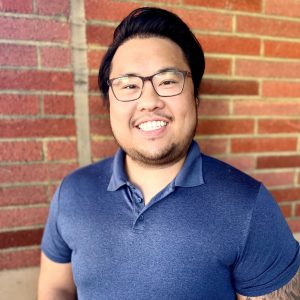 Brian Le (he/him/his) is currently a Ph.D. student in the Higher Education and Organizational Change (HEOC) program at UCLA. Brian holds a bachelor’s degree in kinesiology & health from Iowa State University and a master’s degree in student affairs in higher education from Marquette University. Prior to attending UCLA, Brian worked at Iowa State University for 4 years as a student’s program coordinator for the Science Bound program, a pre-college through college program focused on working with scholars from underrepresented backgrounds to pursue a degree in STEM. He has been a research affiliate on multiple NSF-funded projects surrounding equity in STEM. Brian’s research interests are college access, retention, marginalized students, community colleges, first-generation, STEM education, STEM identity development and engineering education.
Brian Le (he/him/his) is currently a Ph.D. student in the Higher Education and Organizational Change (HEOC) program at UCLA. Brian holds a bachelor’s degree in kinesiology & health from Iowa State University and a master’s degree in student affairs in higher education from Marquette University. Prior to attending UCLA, Brian worked at Iowa State University for 4 years as a student’s program coordinator for the Science Bound program, a pre-college through college program focused on working with scholars from underrepresented backgrounds to pursue a degree in STEM. He has been a research affiliate on multiple NSF-funded projects surrounding equity in STEM. Brian’s research interests are college access, retention, marginalized students, community colleges, first-generation, STEM education, STEM identity development and engineering education. Max Pereyra (he/him/his) is a Ph.D. student in the UCLA Higher Education and Organizational Change program. Additionally, he is earning a graduate certificate in advanced quantitative methodology in educational research. He earned his Master of Education at UCLA with a specialization in student affairs, as well as a bachelor’s degree in bioengineering at the University of California, Riverside. Prior to his work at Momentum, Max worked for three years as a graduate researcher at the UCLA CARE Program, providing gender-based violence prevention education to the UCLA community. Max’s research concerns college student development, examining how identities such as gender, sexuality, and race/ethnicity shape college student experiences.
Max Pereyra (he/him/his) is a Ph.D. student in the UCLA Higher Education and Organizational Change program. Additionally, he is earning a graduate certificate in advanced quantitative methodology in educational research. He earned his Master of Education at UCLA with a specialization in student affairs, as well as a bachelor’s degree in bioengineering at the University of California, Riverside. Prior to his work at Momentum, Max worked for three years as a graduate researcher at the UCLA CARE Program, providing gender-based violence prevention education to the UCLA community. Max’s research concerns college student development, examining how identities such as gender, sexuality, and race/ethnicity shape college student experiences.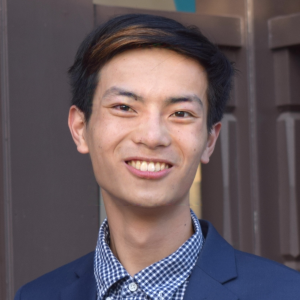 Paul Zhang is an undergraduate Computer Science major at UCLA, graduating in the spring of 2025. He is passionate about improving diversity and retention in computer science, engineering, and technology. At Momentum, Paul works in the CIC survey project on data analysis and has assisted the literature database project team by fact-checking papers. He also conducts technical computer science research under Professor Remy Wang.
Paul Zhang is an undergraduate Computer Science major at UCLA, graduating in the spring of 2025. He is passionate about improving diversity and retention in computer science, engineering, and technology. At Momentum, Paul works in the CIC survey project on data analysis and has assisted the literature database project team by fact-checking papers. He also conducts technical computer science research under Professor Remy Wang.
